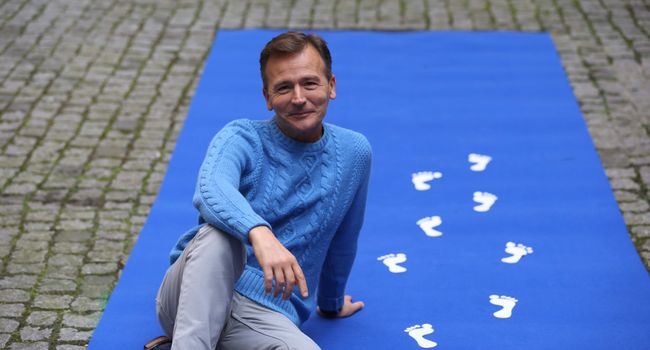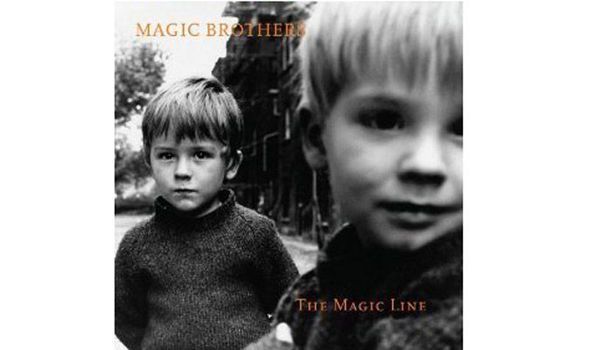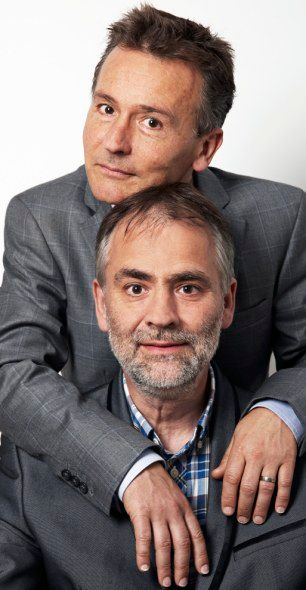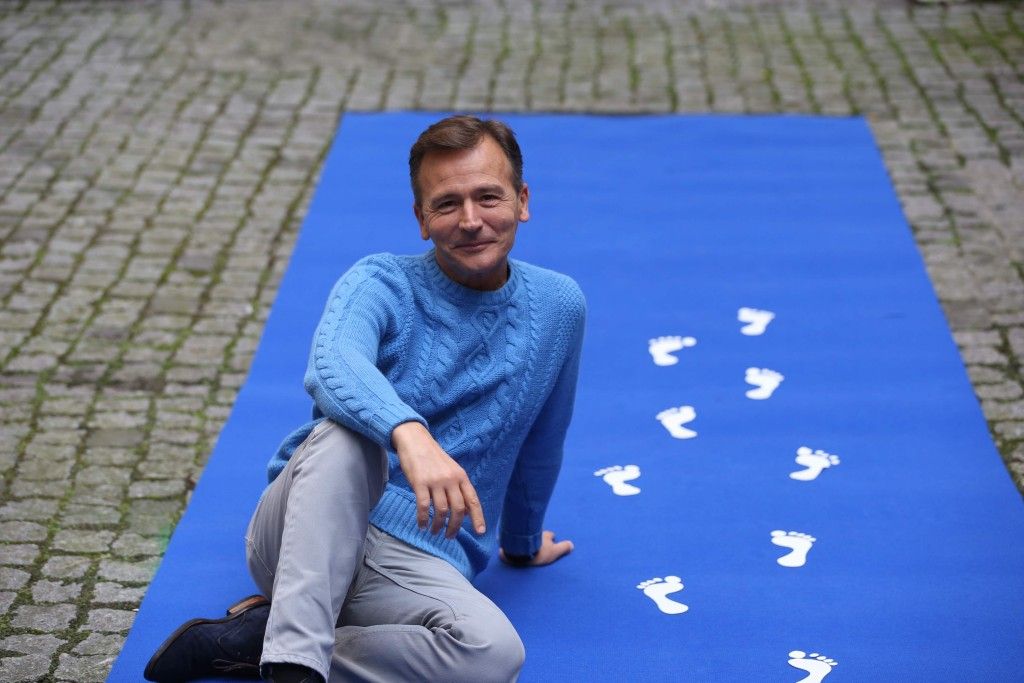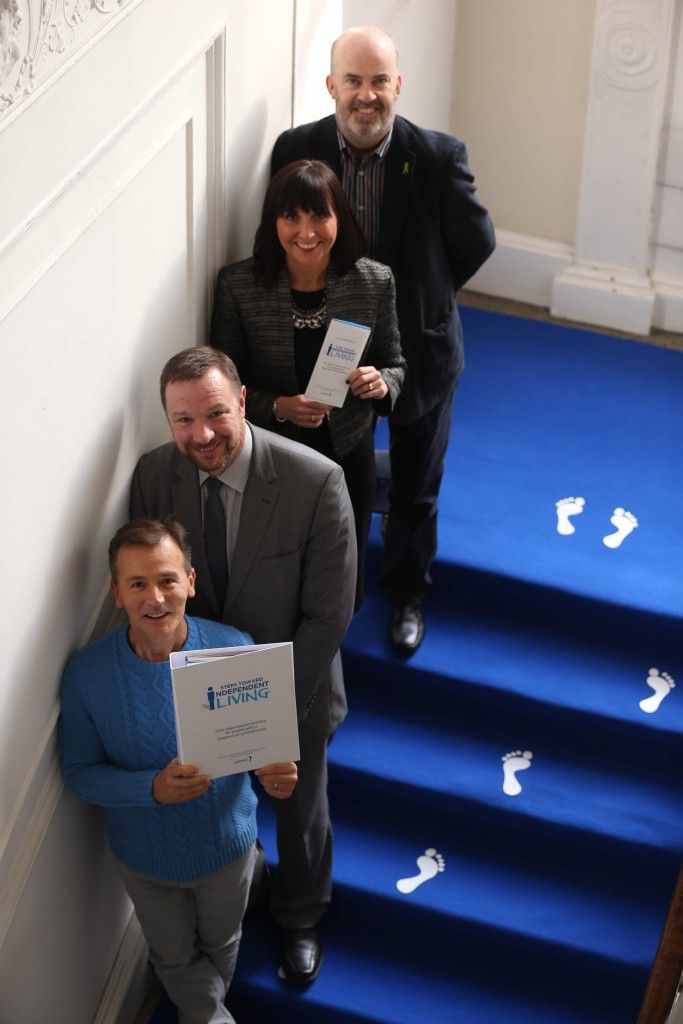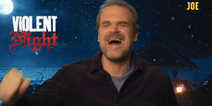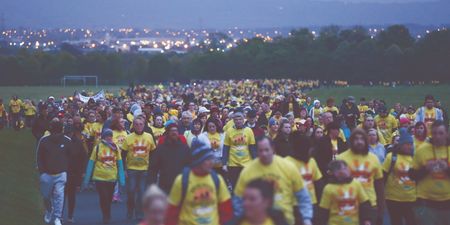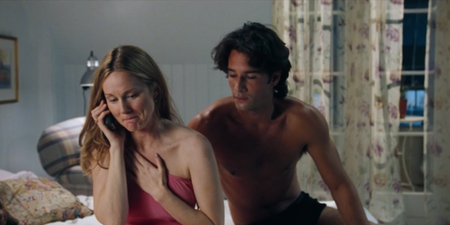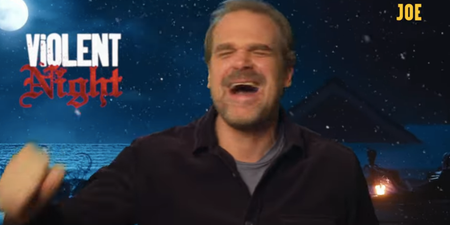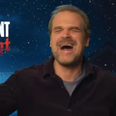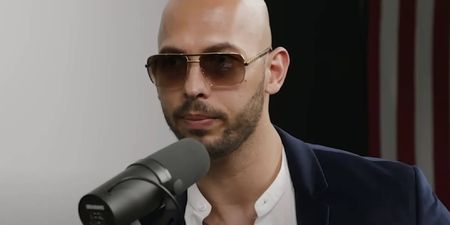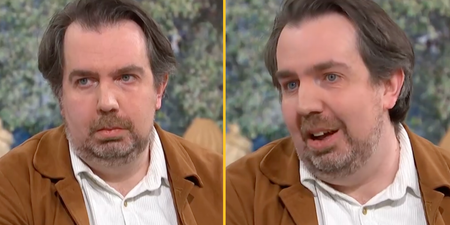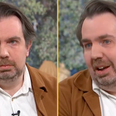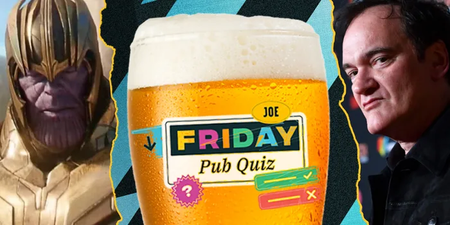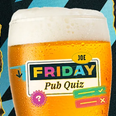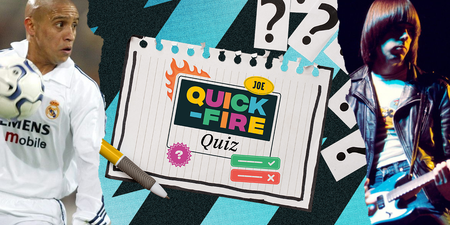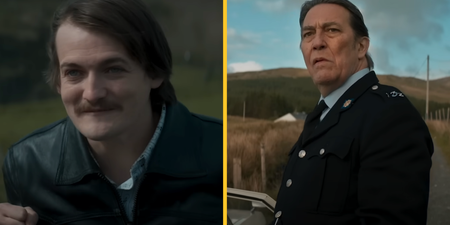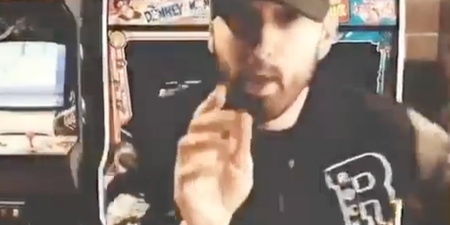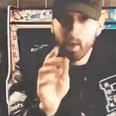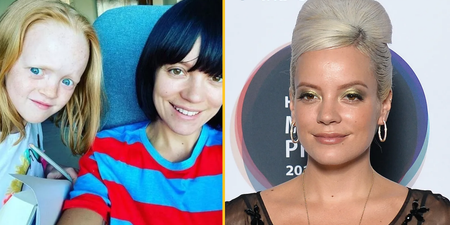Dan ‘Woody’ Woodgate joined The Invaders as drummer in 1978 – they would soon become Madness and enjoy massive success over the next four decades.
Woody grew up with his brother Nick who, in his early teens, began to experience difficulties that would make his life – and that of his family – a massive struggle.
He was eventually diagnosed with schizophrenia and, as a new initiative (Step Towards Independent Living) is launched in Ireland to help people with serious mental health issues, we sat down to chat to Woody about his experiences.
JOE: When did you first become aware of your brother Nick’s difficulties?
Woody Woodgate: “In his early teens, he just isolated himself more and more. He was a really vivacious, charismatic, energetic, popular, intelligent, you name it… Everyone loved him. He was captain of the football team. Very talented in everything. He was bloody annoying, really! But no, he really was just as funny as hell. All the girls loved him, typically.
“But he went from this lovely outwardly going character to slowly shutting down. He became more introverted, he couldn’t look people in the eye, meet their gaze. He was in his own little world more and more and more. And what manifested physically was that his body language started to change.
“Nick was diagnosed with agoraphobia. We’d be walking down the road and Nick would grab on to a lamppost or anything at the side of the pavement, as though his life was under threat. ‘I’m feeling like I’m falling off the world!’ he’d say and it was really horrible to watch.
“Where I really started thinking there was something seriously wrong was when he was playing a gig – he was a great musician – on the same bill as the band that would turn into Madness (they were still The Invaders at the time). Nick was playing in a different band and he turned his back on the audience for the whole gig, stared at his shoes and barely played any of the guitar solos.
“I was thinking, ‘what is going on?’ He just couldn’t deal with life.”
To others, would that have just appeared like an eccentricity of performance?
“Indeed. People did start to say, ‘Nick’s really gone quiet, he’s changed, is he alright?’ It was a funny old time because it was getting to the end of his schooldays, so he would have been leaving a lot of his peers anyway.

“Soon after that time I joined The Invaders, which turned into Madness, so a lot of the time I was gone from Nick’s life as well. We were very, very, very close as brothers. We did everything together.”
That was around 1978?
“Yeah. ’78 was when I joined The Invaders/Madness, and before that we were just coming out of school. I’d got a job, I’d left the home. My brother and I were brought up by my dad, not my mum, and that was strange in the 1960s. It’s no secret that my dad was an alcoholic, so things were difficult at home.

“So I had my dad going off the rails and Nick acting more and more strangely, being more introverted, me not being able to get through to him. I moved across to West London to stay with my mum and Nick soon followed, and from that moment on Nick lived with his mum for most of his life. She came into our lives at a really strange time.”
What symptoms of his condition was he displaying at the time?
“When I was off I got these stories of Nick’s behaviour getting more extreme. He would wander the streets, shouting at buses, exhibiting strange behaviour. I know it’s an awful expression but he was like ‘the nutter’ you see walking the streets, talking to himself.
“But the good thing about it was that he was always lovely. He was a bit eccentric and we would have said barking mad – these aren’t politically correct terms but Nick will use them himself – but he was never a threat to anyone. His behaviour was just a bit bizarre. I’d imagine you’d have avoided him in the street because he was this strange, kind of shuffly, individual, and then he used to turn up at gigs of mine.
“He would just appear at gigs in Paris, or Scandinavia, and leave after five minutes, saying, “I’ve got to go now!” Totally inappropriately dressed, jeans and t-shirt. Just a lot of very bizarre behaviour.”
And then things got more serious?
“It got worse to the point where he started talking about taking his life. This was in his early 20s and my mum tried to get him to seek professional help. But he didn’t tick enough boxes for people to take him, or mum, seriously. It was a really stressful time because we didn’t know what to do to help him.
Image via Daily Mail
“These Steps that we have now would definitely have helped, and if you tied them in with the charity I’m an ambassador for, Rethink in England, and Shine, and others… if these had existed years ago, combined with these Steps, we wouldn’t have gone through all the stress that we did. The doctors at the time were under enough pressure and they had specific guidelines about when they could finally commit someone.”
At what point did that come for Nick?
“In his mid-20s. He was a danger to himself because he constantly talked about committing suicide, and was hell bent on getting out of the house. We couldn’t keep him in the house because you can’t imprison someone, but letting him out meant we worried for his safety.
“So he was sectioned. It was actually the best thing that could have happened to him. For the first time ever he was able to be assessed by medical staff, given medication for the first time, and after a short amount of time he became lucid and clear and not talking gibberish.”
What can you say about Nick trying LSD, and the effect that may have had?
“He tried LSD twice, in his early teens. Nick said it was soon after the second time he took it that things started to be ‘not right.’ It was like opening up a door that never closed. I do remember him smoking some marijuana as well.
“He wasn’t a dope fiend but I think someone just passed him a joint and he took a lug of this thing. The next thing he was standing on the table, absolutely freaked out, and I remember him at a very early age saying, ‘I’m never smoking that gear!’ It just sent him absolutely around the bend. It was not for him! Nick’s very anti-drugs.”
Is there any indication that it was those brief flirtations with drugs that led to Nick’s issues?
“We don’t know. We don’t know. Let’s put it this way, it didn’t help. No-one knows. Medical science had definitely put a link between psychosis and marijuana and I would imagine LSD is not a helpful drug when it comes to mental health. Nobody can say one way or the other for definite but really it doesn’t matter. Nick is a schizophrenic, he did take LSD and marijuana did not agree with him, but those are just facts and don’t allow for any grey area.
“There are lots of people with schizophrenia who have never touched anything, so who knows?”
How did it affect your working life?
“I love my brother and of course it affected me. I’ve been through a lot with him. My mum, myself, my dad before he died. It’s a horrible illness but it was a bloody relief when we discovered what he had. Not knowing is the worst thing.”
There’s a saying, ‘know your enemy.’
“Exactly. Once you know the problem, you can find the solution. Since then, Nick as a human being has enhanced my career. I write with him. And he’s a bloody good writer, he writes some cracking good songs. If he didn’t have this illness we’d be talking about a great talent and somebody who contributes towards the great raft of songs, for Madness and others.”
Talk to me about The Magic Brothers, your musical collaboration with Nick
“Being his brother, his songs frustrated the hell out of me. As soon as I started (to point things out) to him it dawned on me that we should be working together. All of a sudden we were talking to each other every single day and we were talking about music.
“It’s a good message to have someone who has been successful, like myself, promoting the fact that he’s got a schizophrenic brother who’s an asset to the world instead of a hindrance. It’s a good message, and that’s really the journey that we’ve been on.
“Nick is such a positive role model in my life, he’s really inspiring, and this stigma attached to mental illness is wrong. Just because you can’t function ‘normally’ doesn’t mean there isn’t a place there for you. Nick couldn’t hold down a job but what he’s really good at is writing songs, and we found a way to facilitate that.”
Is Nick aware of how much you look up to him?
“(Laughing) No. I don’t think so.”
Is it that he’s not capable of understanding that?
“No I just don’t tell him! Can’t get too sloppy! No, I think it’s clear and he’s a lovely lad. I must go back and say how good the Steps program is. I can relate it to my life, and Nick’s life. We’ve practiced this. For people who don’t have the support network Nick has, independent living is possible.”
= = =
Woody also spoke to us about Steps Toward Independent Living, a scheme designed to help people with mental health problems properly integrate with normal life.
The scheme was piloted across Ireland earlier this year in Athlone, Wicklow and Monaghan.
The Steps programme, developed by Janssen in conjunction with experts in the field, with input from Shine, offers participants the opportunity to learn how to make better lifestyle choices for themselves and reduce their sense of isolation as they integrate into community life; a key element in the recovery of people with mental illness.
Week 1: Looking Good, Feeling Good and Getting Active
Week 2: Healthy Eating
Week 3: Treatment and Illness Monitoring
Week 4: Substance Abuse
Week 5: Socialising, Friends and Leisure Time
Week 6: Designing a Healthy Meal Plan
Week 7: Mindfulness
Week 8: Personal Development
Week 9: Awards Ceremony
Week 10: Support Network (optional)
How important do you think the Steps Toward Independent Living scheme will be for people living with schizophrenia in Ireland, and their families?
“It really resonates with me, I think it’s fantastic. The main bullet points, to me, are so obvious. It’s an holistic approach to recovery for schizophrenics and the only reason I say that is from my own experience with my brother. Every bullet point, every ‘step,’ is so obvious. You can’t fix this with one thing, it’s got to be all encompassing.
“These Steps seem to me to be pretty bang on. Mindfulness, meditation, these are things that have been proved to work. Socialising with people is essential. Being able to talk to people is essential, and working towards achievable goals – and getting rewarded for it… it’s just life!”
“If you’ve got a meeting with someone, it’s a ‘how to’ guide on arranging that meeting. This is about the little things that we take for granted. If you need to talk to somebody about getting your phone connected, we take it for granted but I know my brother would worry about it; that stress and not knowing how to communicate with people, worrying that people think you’re sounding strange when in fact you’re not. All of these things associated with schizophrenia.
“It’s about building self worth and showing that you are a valuable person in society.”
Is there an element of taking the self consciousness out of it?
“Yes. Any trick to get ‘out of self’ is good. Where you encourage those with schizophrenia to mix with other people, to talk in groups. What you’re doing there is getting ‘out of self’ as the illness is centred in the mind. Getting out and about and interacting with people means you’re not isolated.”
LISTEN: You Must Be Jokin’ with Aideen McQueen – Faith healers, Coolock craic and Gigging as Gaeilge
